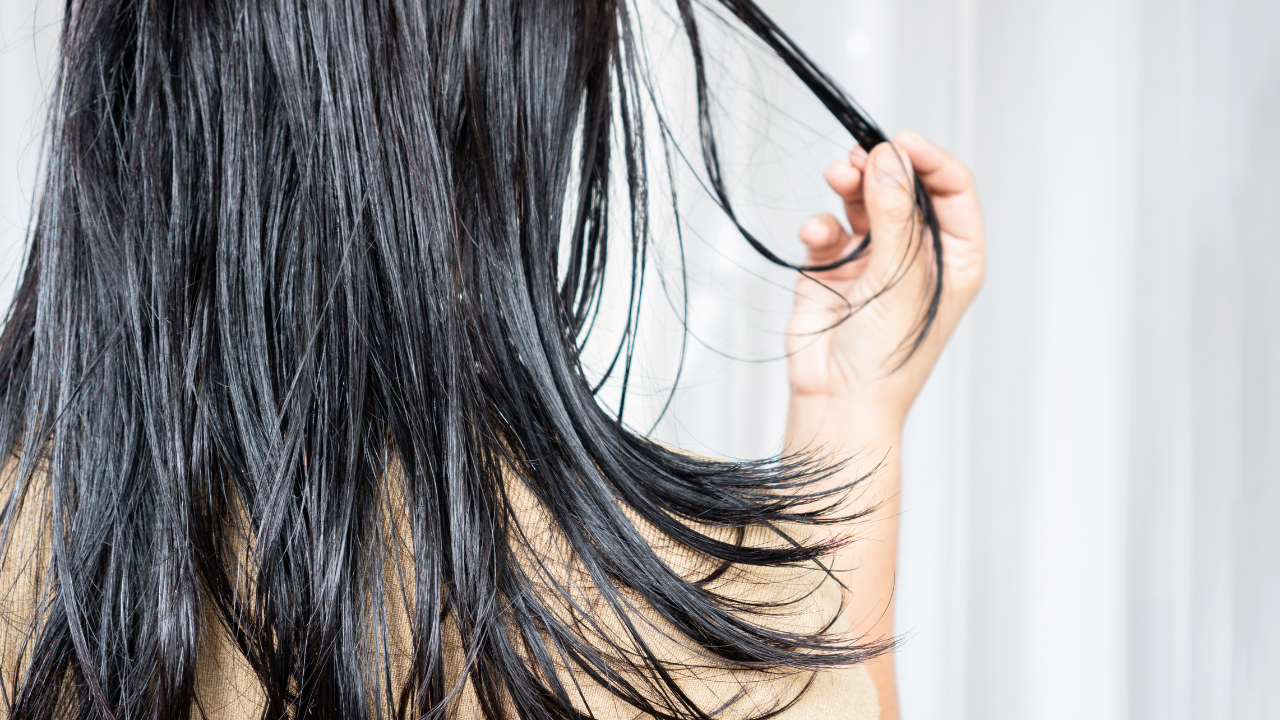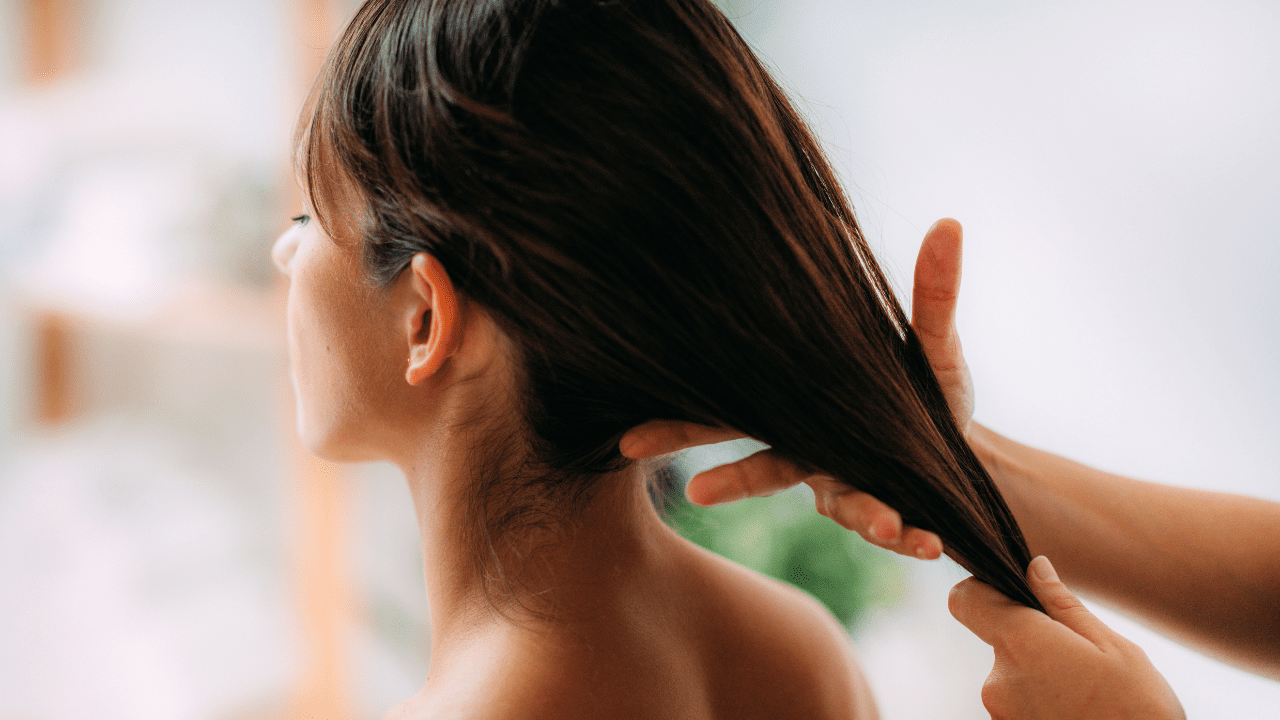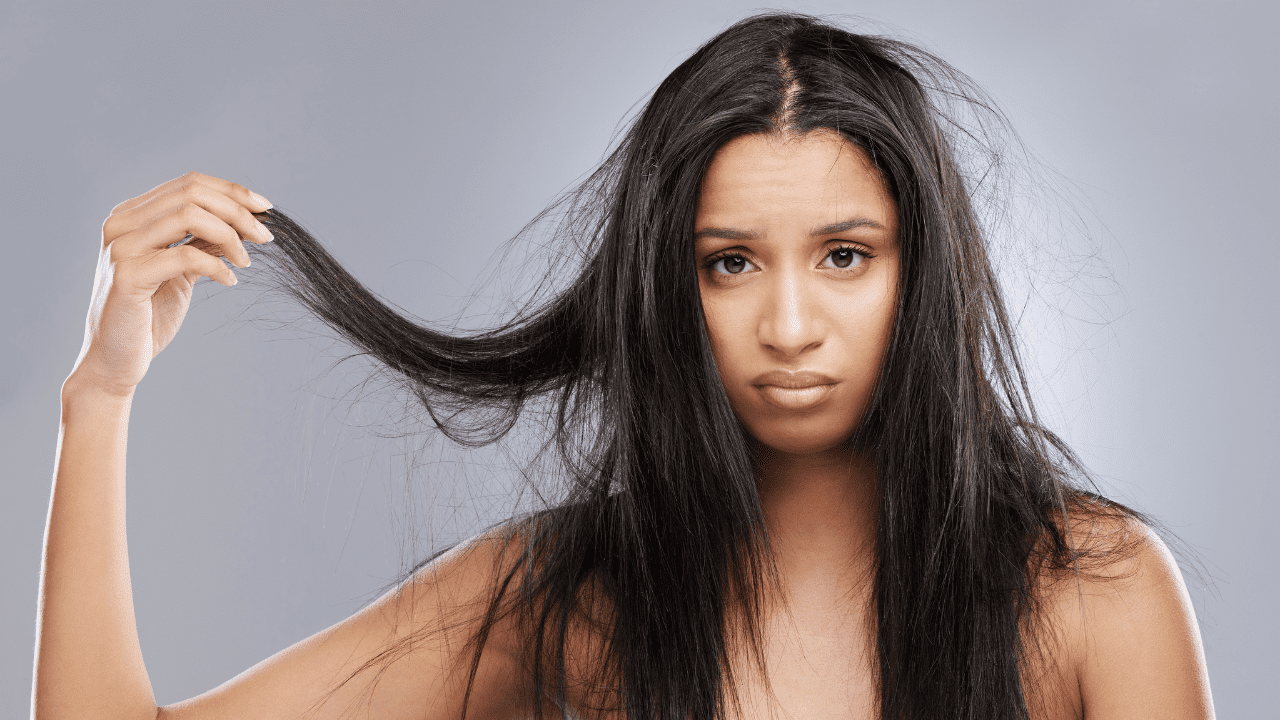Many people, especially women, have experienced the unsettling sight of clumps of hair collecting in the drain after a shower. This often raises concerns: Is it normal to lose hair in the shower? How much hair loss is too much? Understanding what constitutes normal hair loss can help alleviate anxiety and guide you in maintaining healthy hair.
How Much Hair Should I Lose in the Shower?
A normal amount of hair loss in the shower is usually around 50 to 100 strands, which is part of the natural shedding process. This may seem like a lot but it’s generally not a cause for concern as this number can vary based on hair type, hair length, and even the season.
Hair strands collected in the drain or on the shower floor often look like more than they actually are. The strands clump together, making it appear as though you’re losing more hair than you really are. This is especially true for women with curly hair, as curls tend to intertwine and create the illusion of more significant hair loss.
Why Do I Lose So Much Hair in the Shower?
If you’ve ever wondered, “Why do I lose so much hair in the shower?” you’re not alone. There are several reasons why hair might appear to fall out more during showering:
- Detangling: When you shampoo and condition your hair, you’re likely running your fingers or a comb through it. This can cause loose hairs that have already shed to come out all at once.
- Product Build-Up: Product build-up on the scalp can lead to weaker hair follicles, which might result in more shedding when you wash your hair.
- Hair Cycle: Hair grows in cycles: growth, rest, and shedding. If your hair is in the shedding phase, you may notice more strands falling out during your shower.
- Hair Washing Frequency: If you don’t wash your hair regularly, the strands that would typically fall out naturally may accumulate and come out all at once during your next shower.
Is It Normal to Lose a Lot of Hair in the Shower?
Yes, it can be normal to lose what seems like a lot of hair in the shower, particularly if you have not washed your hair for a few days or if you have long hair. For men, especially those with longer hair, the same applies. The accumulation of daily hair loss can appear more significant when it’s all being washed away at once.
Hair Falling Out in the Shower: Should You Be Concerned?
Hair falling out in the shower is not uncommon, but there are instances where it might indicate a problem. If you notice excessive hair loss that goes beyond the typical 100 strands or if your hair is thinning noticeably, it may be time to investigate further.
Why Am I Losing So Much Hair in the Shower?
There are several reasons why you might be losing more hair in the shower than usual:
- Stress: High stress levels can push more hair follicles into the shedding phase, resulting in more noticeable hair loss.
- Hormonal Changes: Pregnancy, menopause, or starting/stopping birth control can lead to increased shedding.
- Dietary Deficiencies: Lack of essential nutrients like iron, zinc, or vitamins can weaken hair and cause it to fall out more easily.
- Medical Conditions: Conditions such as thyroid disorders or alopecia can also contribute to excessive hair loss.
When to Be Concerned About Hair Loss
While losing hair in the shower is generally normal, there are times when you should consider consulting a professional:
- Excessive Shedding: If you’re noticing significantly more hair loss than usual, it could be a sign of something more serious.
- Bald Spots: Sudden patches of hair loss or thinning could indicate an underlying issue that needs attention.
- Hair Thinning: If your hair appears to be thinning overall, rather than just shedding, this could be cause for concern.
Conclusion
Yes, it is normal to lose hair in the shower, but the amount can vary from person to person. If you’re concerned about how much hair loss you’re experiencing, it’s important to monitor your hair over time and consider factors such as stress, diet, and hormonal changes.
If you’re losing a lot of hair in the shower and are unsure if it’s normal, it might be worth seeking advice from a trichologist—a specialist in hair and scalp health. They can help diagnose any underlying issues and provide guidance on how to care for your hair.
Taking the right steps can help ensure your hair remains healthy, strong, and vibrant, reducing the amount of hair you see in the shower and giving you peace of mind.




